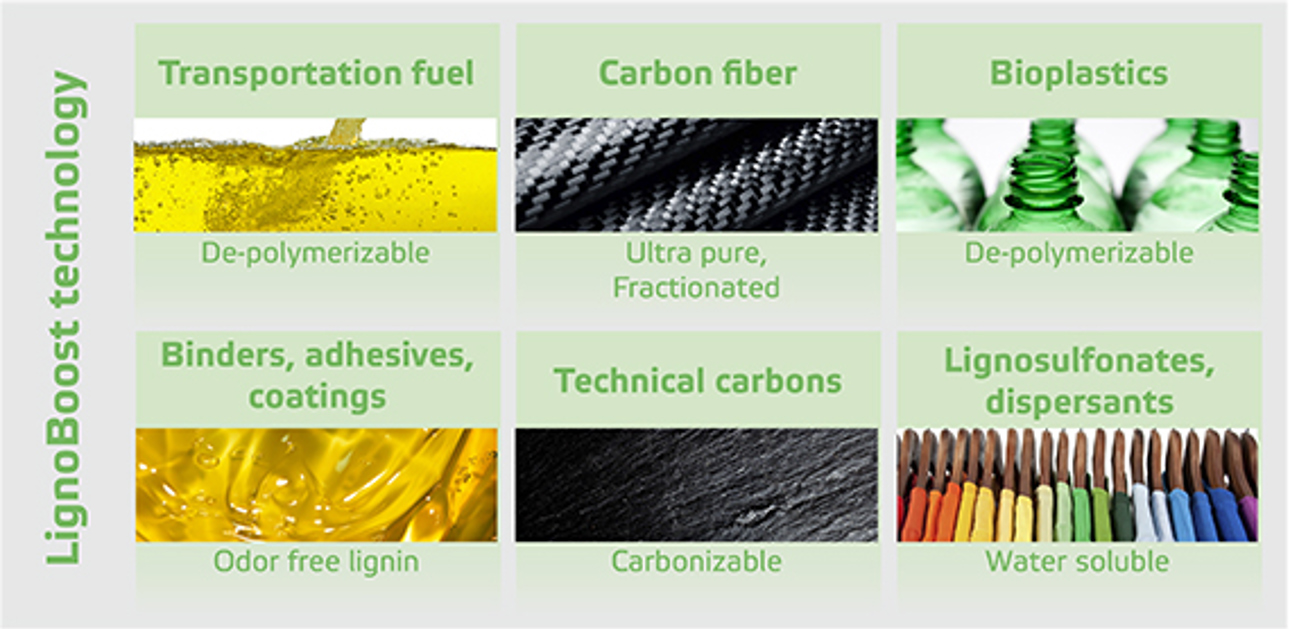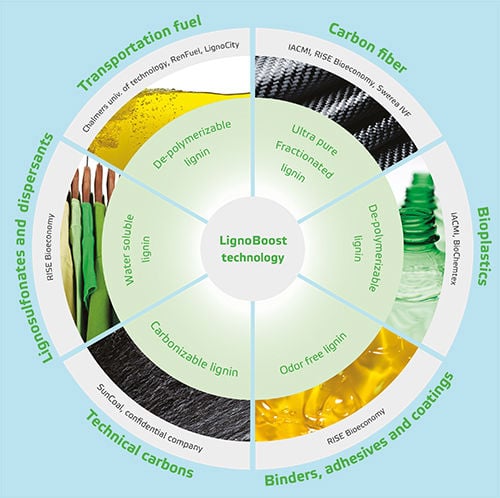Lignin Upgraded – new lignin qualities with LignoBoost
Aug 17, 2018
Valmet’s LignoBoost process has been developed further and new process concepts can tailor the extracted lignin into different qualities. This gives new options for kraft pulp mills to go into new businesses.

Lignin has been extensively studied, and the number of patent applications involving lignin is increasing rapidly. Valmet and its partners have developed several add-on processes to LignoBoost. Today kraft lignin can be tailored to suit many different and interesting uses.

Water soluble, sulfonated lignin
Sulfonated lignin is a well-established product with a wide range of uses. The current world production is more than one million tons per year. Lignosulfonates are almost exclusively produced in sulfite-based chemical pulp mills, as lignosulfonates form in the sulfite process. Sulfonating kraft lignin has traditionally been done with formaldehyde, which poses risks to both workers and the environment. Using a new process available from Valmet, lignin can be sulfonated without the use of formaldehyde. Moreover, as lignin extracted with the LignoBoost process is very pure, the resulting sulfonated lignin contains a lot less impurities and has a high amount of active content. This provides cost effective use in all types of dispersant applications.
Odorless lignin
Valmet and RISE Bioeconomy have recently developed a process that makes it possible to remove 97% of the odorous compounds in lignin. This opens possibilities for using lignin extracted with the LignoBoost process in applications close to the consumer, like boards for indoor use, plastic cutlery or other plastic products.
LignoBoost lignin for biochemicals
Valmet is working with partners to enable the use of lignin as a base for biochemicals. One partner is BioChemtex, an Italian company which is part of the Mossi Ghisolfi group and a leader in technologies for production of second-generation biofuels and biochemicals. Using BioChemtex’s proprietary technology MOGHI, lignin can be used as a sustainable feedstock for production of a bio based version of PET, a thermoplastic polymer. This polymer is used in the manufacturing of a wide range of products like synthetic fibers and containers for food and beverage. The world production of PET is according to some reports currently above 20 million tons per year, and rising.
Going forward
Lignin is renewable and abundant. According to estimates, more than 78 million tons of lignin circulate in the worldwide kraft black liquor flow every year, and some of this is already sold profitably from pulp mills. Going forward, new process concepts enable further upgrading of lignin for even more profitable end products. And when it comes to CO2 emissions, the environment will be a winner, too.
This article was first published in Valmet's customer magazine "Forward", issue 2017:1.